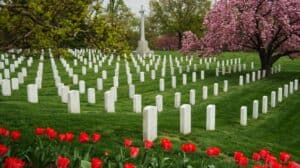
Ask people these 268 WWI Soldier questions for storytelling
Researching and writing WWI narrative about war experiences can be particularly challenging. Stories run the gamut of being very funny to very emotionally gripping. Military service stories can be about the individual who served in the military and the individuals who stayed home, such as spouses, children, extended family, and friends.
I have put together a list of writing prompts and questions to ask based on the answers I have received in interviews and information I have discovered during my research. Use these prompts and questions to help you
- Identify events and memories you can write about
- Identify individuals to include in your stories
- Organize your research strategy
- Identify who to interview and ask about information
- Know what type of information to include in the narratives and stories
- Identify memorabilia, artifacts, photos, documents to include in stories
As a companion article, how to conduct additional research to help learn more about the WWI soldier and WWI era, so you see the period through the eyes of those who lived and experienced WWI. The article is entitled
Table of Contents
ToggleWorld War I (1914-1918) Overview

Fought between the years of 1914-1918, WWI began as a conflict in Europe and spread to 28 nations, including the United States. It was started by Archduke Franz Ferdinand’s assassination, the heir to the Austro-Hungarian Empire’s throne. WWI began in August 1914 when Germany invaded Belgium and France invaded Belgium and France. Several events led to U.S. intervention: the sinking of the Lusitania, a British passenger liner; unrestricted German submarine warfare; and the Zimmerman note, which revealed a German plot to provoke Mexico to war against the United States.
It was referred to by English-speaking countries as the “Great War.” The months leading up to the war were very complex, which an outbreak of miscalculation, misunderstanding, and miscommunication. WWI destroyed four empires –
- German
- Austro-Hungarian
- Ottoman
- Romanov
- Colonial revolts in the areas of the Middle East and Vietnam
WWI I killed more people (9 million combatants and 13 million civilians). The war’s influenza and other diseases epidemic exacerbated the death toll by at least an additional 20 million. Millions of American men were drafted, and Congress created a War Industries Board to coordinate production and a National War Labor Board to unify labor policy. The consequences of WW I lead to and set the stage for WWII.
Over 4.7 million men and women served in the U.S. forces (regular forces, National Guard, and draft units) with 53,402 killed in action, 63,114 died from disease and other causes 205,000-plus wounded in action.
Writing Prompts and Questions for WWI Narratives
The writing prompts and questions to ask about WWI Military Service are part of a 27 article, 108 category series entitled “7,500-plus Questions About Life to Ask People When Writing Narratives.” The prompts and questions are provided to help you look at WWI military service from as many angles as possible. Two categories have been prepared.
- WWI Soldier Narrative (1914-1918). Find 174 writing prompts and questions to ask about a person who joined the military during WWI. They include questions about the branch of service, training, activities, memories, injuries, associations with people who stayed home (e.g., spouse, children, friends, family) coming home, life after war, perceptions, memorabilia, events.
- WWI Non-Soldier Narrative (1914-1918). Find 94 writing prompts and questions to ask about a person who stayed home and did not join the military service during WWI. They include questions about life at home, associations with people in the military, activities, memories, associations at home (e.g., spouse, children, friends, family), work, end of war, community, perceptions, memorabilia, events.
Approach each topic from the point of view of the person/lives you are writing about. You don’t have to ask every question. Review the questions and determine which ones are most appropriate to ask. I would encourage you to modify and add questions as you desire.
I have prepared a couple of other resources that will provide value in interviewing for and writing individual, personal, and family narratives: “Complete Guide for Conducting Oral History Interviews” and “Complete Guide to Writing A Personal Narrative.”
WWI Soldier Narrative

Use the prompts and questions to gather and organize information to help you write a WWI soldier narrative. Think of the questions as if you were the person answering the questions.
Introduction for WWI Soldier Narrative
- Before we get started, I would like to ask you a few personal questions.
- Please state your full name. Please spell.
- Who are your parents?
- What was the year and place of your birth?
- Who are your siblings (e.g., brothers/sisters)?
- Where did you grow up?
- What was your family background?
- What is your educational background?
- What is your current occupation?
- What is your current address?
- What did you do in the time between the end of high school and entering the service?
Enlistment and Training for WWI Soldier Narrative
In this section, you will be discussing the beginning of the military experience, which lays the foundation for the most important section-Active Duty Experiences. If this section begins to drag, move to the next section. Come back to these questions at the end of the interview or another interview session.
- Which branch did you serve in?
- Did you enlist or were drafted?
- How did you feel about the draft?
- What was your rank?
- Were you opposed to serving in the military, or were you proud to serve your country?
- Describe basic training.
- Who was your commanding officer?
- Who were your peers?
- Where and for how long was your training?
• What did you learn? - Did you have trouble getting along with anyone in your unit?
• Why? What became of it?
• How did you deal with it? - Did you have a nickname for the service?
- What were the memorable nicknames of others?
- How did you feel about sharing space with others?
• Did it feel cramped at first?
• Was it easy to get used to? - What was your most vivid memory of this time?
• About specific people or places?
• About specific events? - What did basic training do for your self-confidence?
• Why or why not? - Did you feel as if you were well-prepared for your military duties?
• Were you exceptionally skilled at one particular task?
• Did it become a “specialty”? - Where were you stationed following your basic training?
• What were the people like?
• How long were you there? - How did you keep in touch with your friends and family back home during this time?
Active Duty Experiences for WWI Soldier Narrative
The focus of this section captures the experiences of the veterans’ active duty. This is the central part of the military experience. You have access to veterans’ experience in the service and combat, someone who was there. You will be talking about missions, battles and retracing steps. You will define what was seen and what happened. Essentially, you will be retracing the same scenes, noises and smells, even horrors endured. Some of the parts you review may be very difficult to share. Reassure the person that these are essential parts for others to hear and understand just how life in the military and war are. These experiences recant the sacrifices that have been for those that follow in later generations.
- Can you remember which military units you were a part of?
- What was your role in that unit?
- Did you serve overseas? If yes, where
- When did you get shipped overseas?
• What was your port of embarkation for deployment?
• How did you get to the war zone?
• Tell me about that experience you had during travel.
• When and where did you arrive?
• How long did it take?
• What do you remember seeing? - What type of equipment and uniform were you issued before you were deployed into the combat zone?
- What were your orders?
- Were you an enlisted soldier or an officer? If you were an officer,
• Describe your responsibilities?
• Did anyone serve under you? How many? What do you remember about them?
• Were you involved in planning for any battles? - Did you serve in combat?
• How did you feel?
• Was there something special you did for “good luck”? - Do you serve in a support role?
• Describe the role.
• Did you feel pressure or stress? - Describe your military experiences in terms of most…
• Interesting experiences?
• Exhausting experiences?
• Harrowing experiences?
• Frightening experiences?
• Feeling alone or detached from others?
• Pressure or stress?
• Exciting experiences?
• Unusual experiences?
• Humorous experiences? What were some of the pranks that you or others would pull?
• Memorable experiences? - Do you remember the key battles you were a part of? For example, the Battle of the Bulge
• Describe the time, place, number of participants, and what happened.
• How did these battles affect the War as a whole?
• Are you willing to share the role you played in each battle? - Did you ever meet any POWs?
• Describe the experience? - Were you ever a POW?
• When and where were you taken, prisoner?
• Where were you taken?
• How were you treated?
• What the food and living conditions like as a POW?
• Do you remember any of the other prisoners? Explain.
• Describe the best and worst experiences?
• When were you freed, and what was it like?
• What else do you remember about the experience? - World War I introduced many new types of equipment for warfare, including tanks, U-boats, poison gas, and aviation. Did you use any of these innovations during the war?
- What were your experiences?
- How would you describe your morale?
• What was the overall morale of your comrades? - Did you witness any racial discrimination within your platoon?
- How did the members of your platoon regard the Enemy (e.g., Germans)?
- As a soldier, what was it like for living conditions, food, sleep, and more?
- What were living conditions like for civilians?
- World War I included trench warfare.
• Did you experience this type of fighting?
• Describe what this was like. - Did you become close friends with any of those you fought with?
• Did they keep in touch?
• Did you save any of their lives?
• Did they save yours? - Did you ever need to take someone’s life?
• Briefly describe the experience.
• How did it affect you both immediately and in the long term? - Were you injured or wounded in any way?
• Describe what happened.
• What went through your mind when you realized you were hurt?
• If you were injured, did you heal quickly or not?
• How did it change you in ways that you still noticed years later? - How did soldiers entertain themselves?
- Were there entertainers such as the USO show?
- What did you do when on leave?
- Would you write often home?
• To whom?
• What kind of things would you write about?
• Did you receive letters? From whom? - What did you think of your commanding officers or fellow soldiers?
- If you were injured, did you heal quickly or not?
• Did you return home because of the injury?
• Did you go back to fight? - Where were you when the war ended?
• Describe the experience. - Where you married during the War?
• To whom?
• Explain the experience surrounding your dating and marriage?
• Did you have children?
After the Service for WWI Soldier Narrative
At this point, you are winding down the military experience. You are focusing on what it was like after active duty, postwar life and readjusting to civilian life and society.
- How did you feel when your tour of duty was over?
- What was your highest rank went you left the military?
- Why did you leave the military?
• Honorable discharge?
• Injury?
• End of active duty? - Describe the circumstances and how you felt about them.
- How and when did you return home?
• What was the first thing you remember doing?
• What was the experience like coming home?
• What was it like seeing your family for the first time? - When you returned home, how did family, friends and the community receive you?
- Were you able to return to “normal functioning”?
• Were you able to leave the War behind? Explain.
• When you returned home, was it hard to adjust? Explain.
• Was there someone or something helpful in getting you through the adjustment of returning home? What was their role?
• What did they do? - Have you ever joined a veterans group?
- After all, was said and done, what did you learn from your experiences in the military?
• What lessons do you take away from experience?
• How did they change your and your ideas or values?
• How would you have been different if you had never had these experiences? - What are your thoughts about those who died during the War?
- What message and life advice would you like to leave for future generations?
• What wisdom would you like to impart to me, children, and grandchildren? - Is there anything we should have discussed but did not?
The Sentiment of the Times for WWI Soldier Narrative
- Do you remember the Armistice that was declared on November 11, 1918? Did you join in any victory celebrations?
• What was the mood of the soldiers? - Do you remember Woodrow Wilson’s Fourteen Points and his treaty-making capabilities?
- Did you think that this was a peace that would last? What did you think of the League of Nations?
- What kind of feelings do you recall about the sentiments people held towards the Germans?
Artifacts and Memorabilia for WWI Soldier Narrative
- Did you keep a personal diary?
- Did you record your memoirs on tape or in print?
- Did you save any letters you might have written or received?
- What sort of memorabilia did you save from this time? What did it symbolize to you? What memories and feelings did you have? What kind of memorabilia did you keep from this time? What did it represent to you? For example, are there
• Military records and artifacts
• Photographs
• Writings
• Scrapbooks and momentous
• Journals, written and oral family histories
• Newspapers
• Death event records
Click Here to return to the question and writing prompt categories.
WWI Non-Soldier Narratives

Use the prompts and questions to gather and organize information to help you write WWI non-soldier narratives. Think of the questions as if you were the person answering the questions.
Introduction for WWI Non-Soldier Narrative
- Would I like to ask you a few personal questions to get started?
- What is your full name? Please spell.
- What was your maiden name? Please spell.
- Who were your parents?
- When and where were you born?
- Who are your siblings (e.g., brothers/sisters)?
- Where did you grow up?
- At the time of the War, were you in a relationship, married, or single?
- What were your spouse’s or partner’s names and wartime occupations?
Life During War for WWI Non-Soldier Narrative
- Why did you stay home during this period?
- Were you not called up, or was your tour of duty shorter than the War’s duration?
• Were you too young or too old?
• Did you wish that you could have gone?
• What was it like at home? - What were some of the first changes in your life after the War started?
- What different responsibilities did you have to take on?
- What type of social activities did you participate in at work and after work with coworkers?
- How did you have fun yourself outside of work?
- Did you or others get married during wartime?
• What were weddings like?
• What was it like to date, get married, and be married during the War? - What type of sacrifices did you make during the War? Explain
- What do you remember about the sacrifices the country made for the war effort? For example,
• Rationing
• Buying bonds
• Recycling of rubber, grease, or other commodities
• Other experiences you remember - What was your main wartime activity?
- Did any friends or family fight in the War?
• How did you feel when they left?
• Were you scared? - During the War, what were your most…
• Interesting experiences?
• Exhausting experiences?
• Harrowing experiences?
• Frightening experiences?
• Feeling alone or detached from others?
• Pressure or stress?
• Exiting experiences?
• Unusual experiences?
• Humorous experiences? What were some of the pranks that you or others would pull?
• Memorable experiences? - Were you treated differently because of your gender/ethnicity/race or other factors?
• If so, how did you or others react? - How did you keep in touch with family and friends who were away during this time?
- How did your community respond to the War and civil defense?
- Did child care activities change for mothers?
- How did you cope with wartime shortages?
- What do you remember about war news from newsreels?
- Did you save any letters you wrote or received?
- Did any friends or family die because of the War?
• Who?
• How did they die?
• When and how did they find out about their death? - During the war years, many women and minorities took jobs that they couldn’t get previously.
• Did you notice these changes?
• What did you think of them? - When did the war end for you? Where were you on the day of the Armistice that was declared on November 11, 1918?
- What was it like when your friends and family finally came home?
• Had they changed in ways you didn’t expect?
• Had did you change in ways they didn’t expect?
• Was it hard to adjust to them when they came home?
• What was easiest?
• Did it take a long time for life to return to normal?
Work During War for WWI Non-Soldier Narrative
- What did you do at home to help the war effort?
- Where did you live/work during the War?
- Were you employed outside the home?
- In what industry?
- Why did you choose that activity?
- What kind of training were you given for work?
- What was your title?
- What kind of activities did you perform?
- Who was your supervisor?
- What kind of work did you do?
- What did you like and dislike about it?
- What special rules or conventions did you have to follow?
- With whom did you work?
- If you had children, did you have child care at work?
• If not, what arrangements did you make? - Was your work unionized? Explain.
The Sentiment of the Times for WWI Non-Soldier Narrative
- Do you remember the Armistice that was declared on November 11, 1918? Did you join in any victory celebrations?
• What was the mood of the soldiers? - Do you remember Woodrow Wilson’s Fourteen Points and his treaty-making capabilities?
- Did you think that this was a peace that would last? What did you think of the League of Nations?
- What kind of feelings do you recall about the sentiments people held towards the Germans?
Artifacts and Memorabilia for WWI Non-Soldier Narrative
- Did you keep a personal diary?
- Did you record your memoirs on tape or in print?
- Did you save any letters you might have written or received?
- What sort of memorabilia did you save from this time? What did it symbolize to you? What memories and feelings did you have? What kind of memorabilia did you keep from this time? What did it represent to you? For example, are there
• Military records and artifacts
• Photographs
• Writings
• Scrapbooks and momentous
• Journals, written and oral family histories
• Newspapers
• Death event records
Click Here to return to the question and writing prompt categories.






